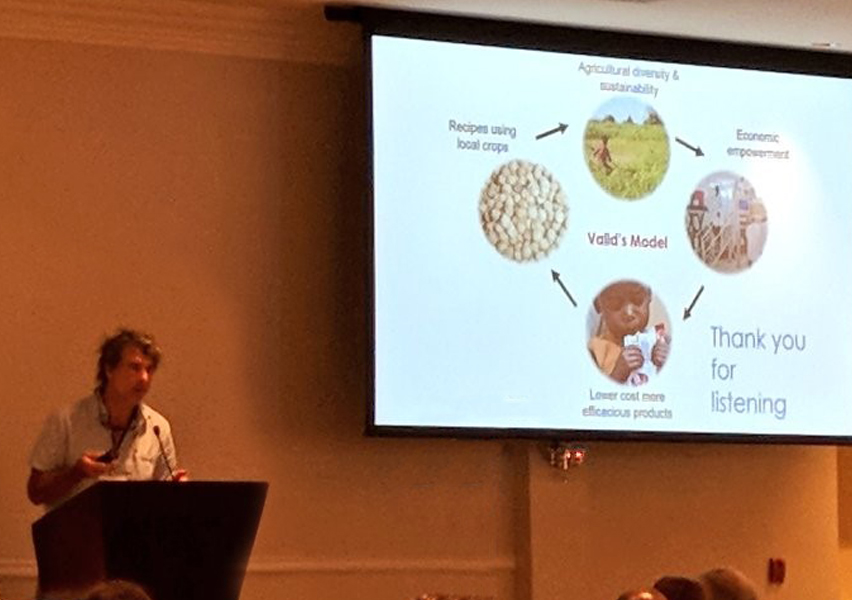What we do: Research & Development | Local production
Local production
Integral to our model is to manufacture life-saving and life-enhancing products within the countries or regions in which they are to be used to maximise social and economic value.


Local production enables:
- The development of the indigenous food industry by supporting the local value chain to supply their produce for the manufacturing of our food products. This in turn, enhances additional farming skills;
- Knowledge and skills transfer on quality food manufacturing;
- Easier and quicker distribution of the food as consumers are closer to the producers;
- In many instances, better marketing of the products as they are made from locally available raw materials which have the preference of the population (i.e. taste is already known and accepted);
- A decrease in the unnecessary movements of food between continents. This, in turn, has a positive impact on our carbon footprint;
- Less storage time, therefore diminished warehousing costs and food losses;
- Direct economic benefits through greater incomes for local farmers and more financial contributions to local economies; and increased employment levels – both direct and indirect, a multiplier effect.
Local production enables:
- The development of the indigenous food industry by supporting the local value chain to supply their produce for the manufacturing of our food products. This in turn, enhances additional farming skills;
- Knowledge and skills transfer on quality food manufacturing;
- Easier and quicker distribution of the food as consumers are closer to the producers;
- In many instances, better marketing of the products as they are made from locally available raw materials which have the preference of the population (i.e. taste is already known and accepted);
- A decrease in the unnecessary movements of food between continents. This, in turn, has a positive impact on our carbon footprint;
- Less storage time, therefore diminished warehousing costs and food losses;
- Direct economic benefits through greater incomes for local farmers and more financial contributions to local economies; and increased employment levels – both direct and indirect, a multiplier effect.

Dr Steve Collins reflects on the opportunities and problems associated with the USD$250 million contribution announced by Administrator, Samantha Power of USAID – a positive catalyst for change?

VALID commissioned and achieved peer-review of a professional report to quantify objectively the overall climate impact profile of the amino-acid enhanced, plant-based RUTF recipe. It has found that the overall global warming potential impacts of the plant-based RUTF recipe are 47%-52% less than the milk-peanut based recipe.

Dr Steve Collins gives a hugely informative and enlightened interview to ENN podcast while discussing his candid Reflections on the UN Global Action Plan on Wasting.
